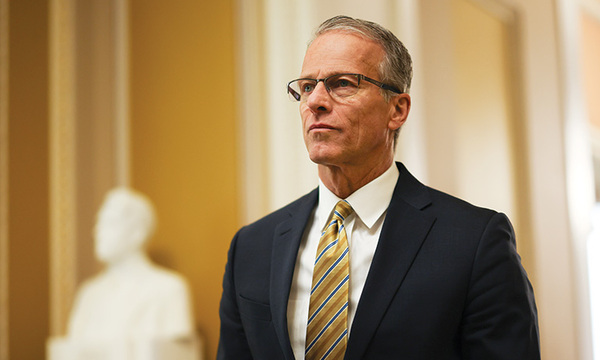If youâre a Christian living in the West, youâll never lack Bible commentaries to consult. But until a year and a half ago, not one complete commentary had ever been produced in Africa from an African perspective.
Thatâs an entire continent of Christians without one.
ČŐČŐĹöşÝşÝÔęžĂžĂÔę2023 graduate Tokunboh Adeyemo (M.Div. â75, M.Th. â76), a Nigerian, undertook the first African commentary at the close of his 25-year term as general secretary of the Association of Evangelicals in Africa, an organization representing 70 million evangelicals. As general editor, Adeyemo brought together 70 African scholars who interpreted and applied the Bible in light of African cultures and realities. The scholars include men and women from more than 20 countries and many denominations.
Besides commentary â brought to life with African proverbs, songs and folklore â the 1,586-page volume features over 70 articles on pressing issues like refugees, AIDS, war and witchcraft.
Over 52,000 English-language copies have already sold in Africa. A French edition is due out next year, followed by translations in Portuguese, Swahili and Hausa â some of the most used languages in Africa.
âJust think of that, 52,000 pastors and church leaders in Africa who never had this kind of resource before now have it,â said Stan Gundry (â63), vice president and editor in chief at Zondervan, which published the English version of the commentary outside Africa.
Theologian John Stott, who wrote the foreword, called it a âpublishing landmark.â And the United Kingdomâs Christian Booksellers Convention named it the 2007 Reference Book of the Year.
But the most meaningful response has been from Africans themselves, according to Adeyemo.
âIndividual comments reaching us include statements like, âThank you for opening the Bible to me,â and âThis is great, I don't know of anything like it,ââ Adeyemo said.
One of the articles, titled âRefugees,â is relevant for a continent where 13.5 million people have been displaced by political violence and power struggles, according to the articleâs author, Celestin Musekara, of Rwanda. After pointing out Godâs care for refugees in the Bible, Musekara urges African Christians to reach out to them â not just with basic necessities and the gospel â but also helping them get work and finding solutions to the problems that create refugees. As a Rwandan proverb goes, âinda irimo ubusa ntigira amatwiâ (an empty stomach has no ears).
One of the more controversial articles tackles a custom that has been hushed for centuries: female genital mutilation. The author, Sicily Mbura Muriithi, a Kenyan, calls for pastors to condemn this practice, which she says occurs in more than 26 African countries. Muriithi argues that itâs oppressive and inconsistent with the Bibleâs teaching that God created the female body and declared it good. Yet, some Christians defend the practice by misapplying the biblical practice of male circumcision, she says.
By helping African Christians gain a more solid understanding of the Bible, the commentary can challenge such flawed views, according to Adeyemo. The Association of Evangelicals in Africa sponsored the commentary after the Second Pan Africa Christian Leadership Assembly was held in 1994. There, Protestant leaders identified deficient knowledge of the Bible as the main weakness of the church in Africa.
Yet, the commentary doesnât offer correctives just for African Christians. It also challenges Western Christians who can sometimes see their own cultures better through another lens, Adeyemo said.
One article that praises the African value of hospitality stands in contrast to American culture, where many next-door neighbors rarely talk to one another. The article notes that most African languages use the same word for âstrangerâ and âguest,â and Africans often prepare extra food for meals in case someone drops in.
Another article, âWorship and Praise,â written by Adeyemo, gives biblical support for the expressive worship found in African churches, including bowing down, kneeling with hands raised above oneâs head, and prostrating oneself before God.
The bookâs article âPolygamyâ may help Western Christians think about whether practices they forbid are merely cultural preference. The author Isabel Apawo Phiri, of Malawi, argues that, while the Bible mostly portrays polygamy in a negative light â and church leaders werenât allowed to have more than one wife â it doesnât explicitly forbid the practice among non-church leaders. So, Phiri supports the consensus of most African evangelical denominations that promote monogamous marriage as Godâs ideal, yet still baptize converted polygamists and accept them in their churches.
The reception of the commentary has been overwhelmingly positive, and Adeyemo is encouraged that both Catholic and Protestant bookshops are selling it.
All the contributors were required to embrace an evangelical Protestant statement of faith, though they were allowed different views on issues like the role of women in the church.
 ČŐČŐĹöşÝşÝÔęžĂžĂÔę2023
ČŐČŐĹöşÝşÝÔęžĂžĂÔę2023


